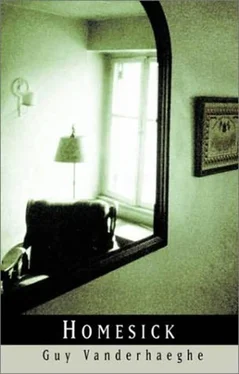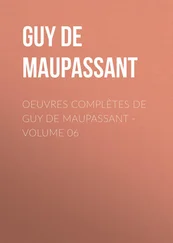According to Vera’s calculations, Mr. Stutz had dispersed the two-thousand-dollar loan and still he continued buying, ignoring her protests. He ordered a meat saw, arguing that if they bought whole carcasses of beef and pork and he cut them up into steaks and roasts, ribs and chops, the savings would be enormous. One more thing. Vera ought to have an electric meat grinder to grind her own hamburger on the premises, fresh. Whenever Vera pointed out the mounting cost Mr. Stutz said, “You have to spend money to make money,” and wrote another cheque. Vera wasn’t exactly convinced by his reasoning. All she could think of was the money flying away, disappearing. It was like standing in a whirlwind, money torn out of her fingers and scurried off to the four points of the compass.
On the eve of her opening the food was delivered. Butter stacked like bars of gold in a sturdy wooden box, sacks of sugar and flour, burlap bags of potatoes and carrots, string bags of onions, cans of coffee and tea, gallon jars of pickles, crates of eggs, salt and pepper, herbs and spices, slabs of bacon, a pink carcass of beef stamped with the government inspector’s blue ink, fryers, cardboard cartons of canned goods, drums of ice cream surrounded her in raw profusion.
Her father’s watchful eye had been trained on all this. It was no coincidence that he had taken to hanging around the hotel across the way more frequently than had been his habit. And whenever a delivery truck drew up in front of The Bluebird Cafe he just happened to step out onto the front steps of the hotel lobby to salute a passerby and delay him with his observations about sports, or politics, or the weather, all the while throwing glances over the man’s head to the goods being hauled through his daughter’s doors. At other times when he did not realize he was being watched himself his nosiness was rude and undisguised. Then he would roost on the top step of the hotel like a cock on its favourite fence post, thrusting out his neck, a rooster preparing to crow, eyes darting an angry bird-like stare at the windows of the cafe. When Vera saw him like this, naked in his disquiet, feathers ruffled up and bristling, she had an inkling of how deeply she had gotten under his skin.
The day the poster went up in her window announcing the Grand Opening, free coffee and doughnuts, he telephoned. His abruptness spoke of a long struggle to suppress emotion. “Vera, this is your father,” he announced in a rush. His voice sounded thick, hoarse. “What’s this I hear about you borrowing money from Stutz. Is it true?”
“You know it’s true – since you heard it from Stutz,” Vera answered.
“I don’t like it. You’re in no position to borrow money. You’ve got no collateral. Who do you expect to bail you out if you go belly up? Me?”
“Expect a call when hell freezes over.”
“You might as well have come to me in the first place. I know who’s going to get stuck with paying up. I’d feel it was my responsibility to Stutz. He works for his money, you know. What he has didn’t grow on trees.”
“Ever think you might have jumped the gun with this mean-minded speculation about Vera’s impending failure? The money isn’t lost yet.”
“It will be. You’ll find out just how easy it is. Soon enough you’ll find out.” He paused. “Anyway, what business did you have going to him for money? Why didn’t you come to me? What’s the matter with my money?”
“Nothing. Aside from the fact it’s yours.”
“What kind of answer is that?”
“The best answer because it’s the most obvious.”
“Let me give you some advice, girl. You’d do well to forget your high and mighty style if you intend to serve the public. The public isn’t looking to have their coffee poured by the Queen of Sheba – which you sometimes seem to mistake yourself for.”
“No,” said Vera, “the public would rather have its coffee poured and its eggs fried by a woman who doesn’t wash her hands after she’s been to the washroom to pee – which is the case with that jewel you’ve employed across the way.”
That took the wind out of his sails. The best reply he could manage was, “Rita is a good worker and loyal.”
Vera refused to miss an opportunity. “Loyal like Stutz?” she asked.
Her father went silent. She could hear him breathing into the mouthpiece of the receiver. “You think you’re so clever,” he said at last. “But did you ever stop to ask yourself what Stutz is up to?”
As a matter of fact she hadn’t, not really. But one thing she could be sure of – if Stutz was up to anything it wouldn’t be crooked. Vera’s voice was confident and cocky. “So tell me, what do you think he’s up to?”
“You figure a careful man like Stutz hands over his savings like that without he has a view to something in particular?”
Vera found her father’s tone annoying. “A view to something else. What?”
“You really ought to dig a little deeper into your business partners,” said the old man. “Of course, how were you to know all the lengths Stutz went to over the last fifteen years trying to land himself a wife? Went to each of the three Protestant churches in turn – Anglican, United, and Lutheran – in search of the girl of his dreams. The only man in town to have sung in all three choirs. Offered to tie himself to anything available for the three-legged races at the church picnics. No takers though, no one willing to lend him a leg. Maybe it was his honesty worked against him, his talk of tithing and his glass eye. They found it very off-putting, virgins and widows alike, the tithing and the glass eye – not to mention the man is as homely as a mud fence. But despite his setbacks Stutz doesn’t lose hope. Seems he’s still in there pitching. Has he referred to the glass eye yet? They say it’s a foolproof sign of serious intentions once Stutz gets around to confessing the glass eye. Mr. Stutz doesn’t want any of his prospective brides to be buying a pig in a poke, so he’s always perfectly honest about that glass eye of his. Try and act surprised when he tells you.”
Vera slammed down the receiver on the mocking voice, hard.

The day of The Bluebird’s official opening Vera hosted a crowd of respectable size lured by free coffee and doughnuts and rumours of a falling-out between Alec Monkman and his daughter. Visitors were quick to note that there was no sign of the old man about the place, just the boy passing around a plate of sugar doughnuts and Vera smiling in a new apron as she poured the coffee. The puzzling element was Mr. Stutz nodding to everyone with a proprietorial air from a back table. No one was sure how to read the significance of that, Mr. Stutz, Alec Monkman’s right-hand man, conspicuously seated at a back table in The Bluebird.
Despite the modest but encouraging success of the Grand Opening, in the days and weeks immediately following, business was slack. There was no give in the market. Alec Monkman kept his regulars because his regulars were creatures of habit. The local storekeepers and clerks still migrated twice a day to the hotel and seated themselves at their customary tables during coffee breaks. They were like dumb horses plodding to familiar stalls, thought Vera. That way get-togethers remained cozy and unchanging, as unchanging as arguments about Saturday night’s hockey game, or the time-honoured ritual of matching for the coffee bill. Each morning and each afternoon the jokes made at the loser’s expense would be repeated and the laughter would be just as loud and appreciative as if it was all happening fresh and for the first time. What Vera couldn’t understand was that the old jokes were better because they were predictable and comfortable. It seemed that people in Connaught didn’t like surprises.
Читать дальше













